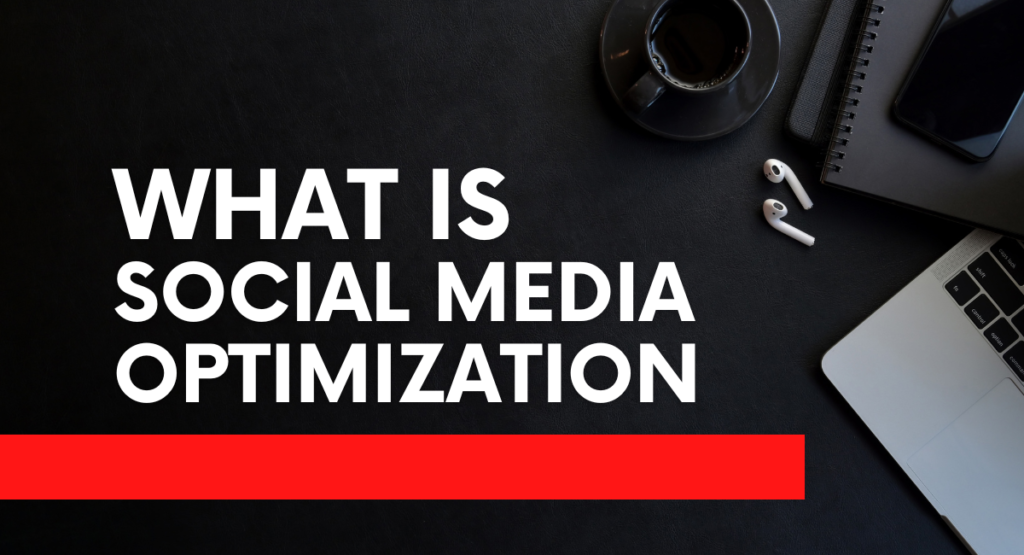Introduction to Digital Marketing Tools
Digital marketing tools are the new tools that are being used in the present for conducting and managing a campaign, analysing data, and improving performance based on various platforms. Social media management, SEO optimization, auto-email options, and analytics tracking are all useful tools that provide actionable insights through which marketers can improve their efficiency. Business enterprises upgrade their online presence with good engagement from their audience and come out better at marketing their product.
Definition and importance of digital marketing tools
Digital marketing tools are the software solutions designed to help in developing, managing, and analyzing the marketer’s campaign. These are an indispensable ingredient to almost every business to progress its marketing efforts and enhance the process while giving data-driven insights. Thus, they drive and optimize campaigns, boost customer engagement, and enhance efficiency within a rapidly increasing competitive digital space.
Overview of how these tools enhance marketing strategies
It involves automation of activities, tracking performance, and giving insights to make data-driven decisions. This includes optimization of content, managing social media more effectively, good search engines, and targeting the appropriate audience. The integration of these tools with a marketing plan will better their results, enhance the levels of engagement and rates of conversion, and conserve time and resources.
Types of Digital Marketing Tools
Social Media Management Tools
They help make posting schedules, handling multiple accounts, and processing analytics engagement across different platforms more manageable. Thus, they facilitate better distribution of content and enhance social media strategies. After them, you have Hootsuite and Buffer, which essentially provide access to monitoring conversations, engaging with people, and gauging their performance metrics that eventually boost their social media presence.
- Features and benefits of social media tools
Such social media tools have the features of scheduling analytics and audience insights on the management of a business’s online presence. Marketers become enabled with features allowing them to monitor key metrics, monitor engagement, and optimize their social media strategy.
- Popular tools
Among the management social media tools most used there are Hootsuite and Buffer. Both provide scheduling posts, monitoring performance, and in real-time engagement with the audience. They include functionalities like analytics content planning that streamlines the strategy of marketers involved with social media and increases overall engagement on networks.
SEO Tools
In the optimization process of a website to acquire better ranking positions in search result pages, SEO Tools are quite crucial. Competitor comparison, rank tracking, and keyword relevance can be known only through SEO Tools. Each of the tools – SEMrush and Ahrefs – provides keyword research, backlink analysis, and site auditing as part of an entire solution thereby enhancing search visibility and organic traffic to websites.
- Importance of SEO in digital marketing
Since SEO is one of the pillars of digital marketing, a business can remain visibly present in search engines, which consequently allows organic traffic. Once executed properly, an SEO will enhance ranking as well as increase conversion rates and website traffic. On-page and off-page factors are optimized to increase the presence of a business online and connect with potential customers searching for their product or services.
- Recommended SEO tools
Among the prevalent tools found in the realm of keyword research and competitor, as well as backlink tracking, SEMrush and Ahrefs are undoubtedly considered two of the most critical. Given that Ahrefs go a step further to discuss link building as well as content analysis, SEMrush is more on how a site can rank as well as offer keyword rankings. These tools are perfect for businesses trying to maximize their search engine ranking while, at the same time, boosting their online presence.
Email Marketing Tools
This tool is applied in the automation and management of email marketing campaigns, thereby allowing a company to send tailored messages to subscribers of the company. Other features are the capacity for using templates, segmenting the target audience, and tracking performance through tools like Mailchimp and Constant Contact. The categories of such an approach toward email marketing keep customers engaged, build relationships, and bring in conversions through personalized e-mails.
- Role of email marketing in digital strategies
Email marketing is an integral part of digital strategies. This can enable the company to keep in touch with prospects. Through this end, targeted email campaigns can create leads, generate product sales, and ensure customer loyalty. This is also helpful in delivering personalized content, enhancing customer loyalty, and encouraging repeat business.
- Effective email marketing tools
The most popular email marketing services provided to businesses include Mailchimp and Constant Contact. On Mailchimp, personalized content output is automatically enabled depending on the segmentation and details of the audience analytics, while Constant Contact offers its users templates and features that track campaign performance. In these tools, improvements are made in the effectiveness of email marketing in that the firms can directly address their target audience with relevant content while allowing the evaluation of the effectiveness of the campaigns.
Analytics and Reporting Tools
Analytics and reporting software: Campaign performance, user behavior, website traffic-all of those can be insights by analytics and reporting tools. Such tools can track the conversion, watch important metrics, and even see tracking set on Google Analytics and HubSpot. That would be helpful in the refinement and improvement with the business’ marketing approaches while ensuring the optimization of customer experiences and even their performances.
- Importance of data analytics in digital marketing
One of the essentials of digital marketing is the understanding of customer behavior and measuring return in any campaign, highly covered under data analytics. An analysis of data will give businesses an opportunity to optimize a strategy for improvement in targeting and maximize ROI. Over user interactions with such actionable insights, marketers can refine their content and improve engagement effectively, thus making decisions based on real-time data.
- Key analytics tools
These are Google Analytics and HubSpot. This is one of the most widely utilized analytics tools in digital marketing. Google Analytics analyses traffic tracking on to your website and its behavior on your website as well as all the conversion rates. HubSpot, on the other hand, provides reports with more detailed information on marketing, sales, and customer interaction. Such analytics tools will enable organizations to review performance data and measure campaign effectiveness while improving marketing strategies based on data-driven insights.
Content Creation and Management Tools
With content creation and management tools, digital content is automatically created, edited, and published. There are content creation and management tools like Canva and WordPress that allow marketers to develop those visual components of content, blog posts and manage content on websites in such a way that work flows smoothly about content, which is, of course, consistent in delivering high-quality contents that appeal to what its target audience likes most.
- Importance of content in digital marketing
Content is what enables digital marketing to deliver value, build brand awareness, and engage the customer. Indeed, quality content supports the attraction and retention of customers-it can improve search engine ranking positions; most importantly, it helps businesses build authority in their specialty. From here we can then see the importance of planning content in achieving long-term success in digital marketing.
- Tools for content creation
However, this makes graphic design much easier using Canva; therefore, marketers can share other product-related stuff on social media, advertisements, or blogs. WordPress is a powerful content management system that generates and publishes blog posts, web pages, and digital content. These tools make the creation of content more straightforward while giving an inside professional look online.
Benefits of Using Digital Marketing Tools
While digital marketing tools are efficient, targeted, and make available real-time insights about one’s performance, tools can automate repetitive tasks, track performance metrics, and help businesses personalize their marketing efforts, thus bringing up engagement, raising productivity levels, and informing better decision making-well over and above when it comes to higher ROI.
- Enhanced efficiency and productivity
Digital marketing tools can automate certain tasks, such as post scheduling, emails, or analytical results. This in turn heightens productivity through the efficiency of free task managements while allowing marketers to focus their energies on strategy and creativity. With these tools, one can create more with less effort and produce better output due to the working flow streamlining.
- Improved targeting and personalization
Such digital marketing tools have sophisticated features related to audience segmentation and personalizing the approach in the marketing techniques. Email automation and analytics allow a company to send focused messages to a target audience depending upon their behavior, preference, or demographics. A more personal approach attracts more engagement and provides good customer experience with higher conversion rates.
- Real-time analytics and insights
Real-time analytics provides businesses with the chance to give instant feedback on marketing campaigns, and organizations can take appropriate measures in time to produce maximum output. Such tools as Google Analytics and HubSpot track traffic, conversions, and engagement in real time. This allows marketers to react to trends that will improve performance in a campaign or even lead to data-driven decisions.
Choosing the Right Tools for Your Business
If one needs to pick the right digital marketing tools then, one has to match them with the business goals and budget too. It is the small enterprises which focus more on cost-effective solutions whereas larger enterprises use premium tools for availing the advanced features. It is through such correct tools that efforts can be streamlined at marketing along with matching the business objectives for the best possible result.
Assessing Your Marketing Needs
The starting point in the selection of the right digital marketing tools is to look at what you already have-your existing strategies, goals, and resources. Have gaps that you don’t yet fill in your marketing efforts. Decide which tool would help strengthen your social media, enhance SEO, or facilitate strengthening content creation. Proper assessment can then assure that you choose the right tools for your needs.
- Understanding your business goals
When the digital marketing tools are aligned to your business goals, you ensure that you are spending your money on the appropriate resources. When you want more awareness about a brand, when you need to drive sales, or when you want to engage with customers, you need to use the right digital marketing tool for these purposes.What that does is gives clear objectives so one measures success in whatever he ventures into and, therefore, enables long-term growth.
- Evaluating current marketing strategies
Identify your current state, and what do you need to work on before your acquire the digital marketing tools. What gaps will your strategy need to fill? Which ones: social media management, SEO, email marketing, or content creation? This will help you make sure you are investing in solutions to properly fill the problems in your marketing stream at its current state.
Budget Considerations
Factors to consider in this area include budget, since most of the digital marketing tools are connected to financial investments. Budget ties in pretty well, especially for businesses, as small businesses opt for free or low cost but complete tools, while large-scale businesses spend extra money for premium solutions. In the end of it all, it’s all about finding the cost-effective tools that meet your needs without costing an arm and leg.
- Cost-effective tools for small businesses
Most small businesses need low-cost digital marketing tools that can deliver the feature jobs, if nothing more, without necessarily being really expensive. Canva, Google Analytics, and Mailchimp provide fantastic services for a price or absolutely for nothing. With these great bargains, small businesses are given a chance to handle their digital marketing tasks adequately on a shoestring budget.
- Premium tools for larger enterprises
Large corporations demand more advanced solutions for digital marketing that can offer better functionalities in terms of scale and personalization. Solutions like HubSpot and SEMrush provide all those features in the form of advanced analytics, automation, and in-depth reporting to solve the complex needs of large corporations. They also provide corporations with functionality regarding better customer segmentation, enhanced marketing automation, and deeper insights into marketing performance. This is what makes it easier for corporations to accomplish their goals on a much bigger scale.
Future Trends in Digital Marketing Tools
With evolution day by day, the digital marketing landscape is always discovering more advanced tools. Among the emerging trends, those of AI and automation are leading the marketing functions toward smarter recommendations and the repeititive work of automation. Data privacy and security issues for consumers would need to be communicated such that they guarantee compliance with these issues, ensuring that the marketer can maintain the trust of his or her customers.
- Rise of AI and automation in digital marketing
AI and automation in the digital marketing space will make targeting, campaign optimization, and recommendation relatively easy and more effective. Huge data sets would be processed using AI-powered tools to predict consumer behavior and automate content distribution for much better customer experience. AI will help marketers achieve better efficiency in scaling campaigns and deliver very relevant messaging to their targeted audience.
- The increasing importance of data privacy and security
Marketers will be selective and fussy about the digital marketing tools that emphasize user consent and provide assurance in relation to data security. Enhanced features of privacy are going to dominate future digital marketing tools, which can make it possible to stay in tune with the needs of law while being transparent to the customer. Guarding the users’ data would be the first step towards re-building trust and eventually towards brand protection.
Conclusion
In a nutshell, the general practice of marketing tools is fundamental for businesses since it will make them streamline their activities and work efficiently while raising positive outcomes. From the management of social media to optimizing with a search engine, then to email marketing, data analytics: these will allow companies to automate their processes and have an eye on the effectiveness of campaigns such that data-driven decisions can be made. Using the right tools, firms can personalize campaigns, and they can improve targeting and be better communicators to the audience. Be it a low-cost solution for SMEs or high-end tools for big corporates, digital marketing tools are the only way to remain afloat in this age and fulfill long-term goals.
FAQ’s
What are the essential tools of digital marketing?
Digital marketing tool key elements involve management of social media, SEO, email marketing, content generation, and analytics software.
How do I choose the right digital marketing tools for my business?
Select a tool based on your marketing objectives, business size, and budget and those strategies already in use that suit the particular need that it serves.
Are there free digital marketing tools available?
Yes and many of these tools such as Google Analytics, Canva, Mailchimp offer very robust functionality for small businesses, and even beginners. Because it’s free, one can just opt for it without worrying about the cost, and thus no risk.
What is the role of analytics in digital marketing tools?
Analytics tools track the performance of various marketing activities and give an insight into the behavior of customers, enabling marketers to optimize their marketing campaigns in better decision-making processes.







